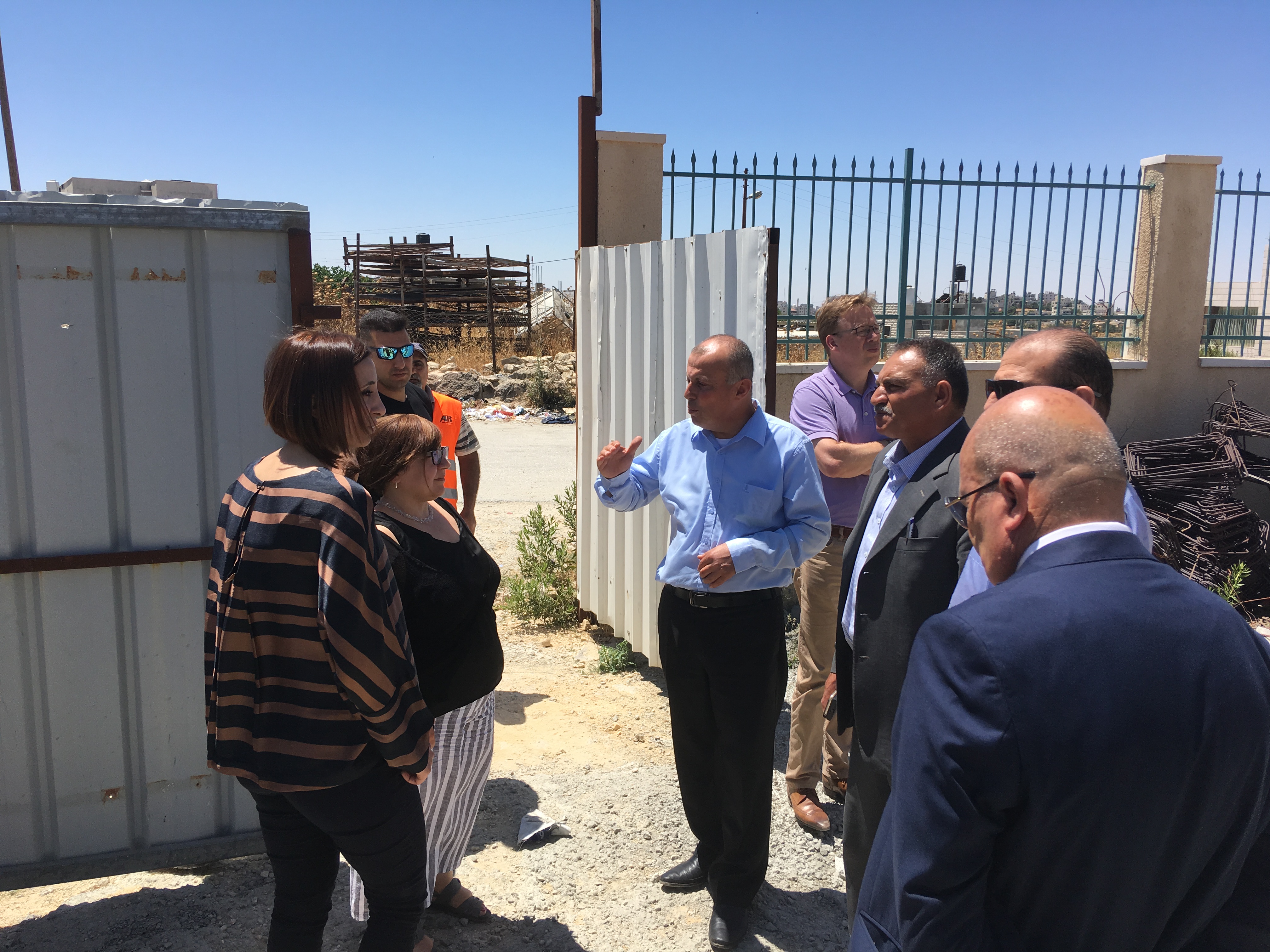Kick-off Nuffic OKP training programme to improve Local Water Governance and Water Cycle Management in the Palestinian Territories
05 October 2020In Palestine more than 300 Water Service Companies supply water and manage wastewater. The vast majority face significant problems resulting from weak institutional capacity, insufficient water availability combined with poor infrastructure and high water losses, as well as insufficient revenue generation. As a result, services are not meeting the needs of the citizens, leading to a lack in their willingness to pay water bills, which further affects the sustainability of service delivery. To help combat these issues, the Palestinian Water Authority, The Hague Academy for Local Governance and World Waternet joined forces and kicked-off the one-year training programme ‘Improving Local Water Governance and Water Cycle Management’.
The Palestinian Water Authority (PWA) is a public institution with the responsibility to develop and sustainably manage water resources in Palestine. The PWA is responsible for the development of plans and programmes for capacity building, training and the qualification of technical staff working in the Palestinian water sector with the aim of improving the management of water resources.
Improving Local Water Governance and Water Cycle Management
In August 2020, the PWA, The Hague Academy for Local Governance and World Waternet kicked-off the one-year training programme ‘Improving Local Water Governance and Water Cycle Management’, funded by Nuffic’s Orange Knowledge Programme. This programme will provide training onlocal water governance and water cycle management to staff members from the PWA and Water Service Companies. It will focus on two pilot areas in Salfit Governorate and Hebron Governorate.
The programme will provide practical skills training that will further develop into so-called Back Home Action Plans, which will aim to improve institutional capacity of PWA staff to address its challenges. In addition, a Training-of-Trainers is offered to ensure that participants gain the necessary skills to facilitate and deliver the knowledge of the content training to colleagues, partners and clients in the Palestinian water sector. The proposed training will cover the following subjects:
- Water sector reforms in the Palestinian Territories (using past experiences in the Netherlands as an example)
- Effective water governance
- Inclusive water service delivery and citizen participation in water management
- Best practices in water cycle management
- Financial management of water service delivery
- Risks and solutions in water, sanitation and hygiene (WASH)
- Action plans for implementation

WaterWorX and Blue Deal partnership
This training programme is a fitting complement to the long-term partnerships the Blue Deal (2019 – 2030) and WaterWorX (2020 – 2030). The Blue Deal partnership between the PWA and Dutch Water Authorities (DWA) focuses on water allocation, water quality control and wastewater treatment - with World Waternet as lead partner and regional water authority Vechtstromen as the executive operating agency. The WaterWorX partnership between the PWA and World Waternet focuses on drinking water, also within local municipalities, and intends to ensure drinking water security in the West Bank, as well as improving strategic planning, water treatment capacity, Non-Revenue Water and pro-poor WASH connections.
Role of NWP in building networks
As a direct result of the Water Platform for Palestinian Territories event organized and hosted by NWP, The Hague Academy for Local Governance and World Waternet began exploring opportunities to cooperate along each organization’s expertise. Both The Hague Academy for Local Governance and World Waternet are grateful to NWP for connecting us and supporting these efforts, which resulted in the training programme described above. This is yet another example of NWP bringing experienced organisations together to deliver results.